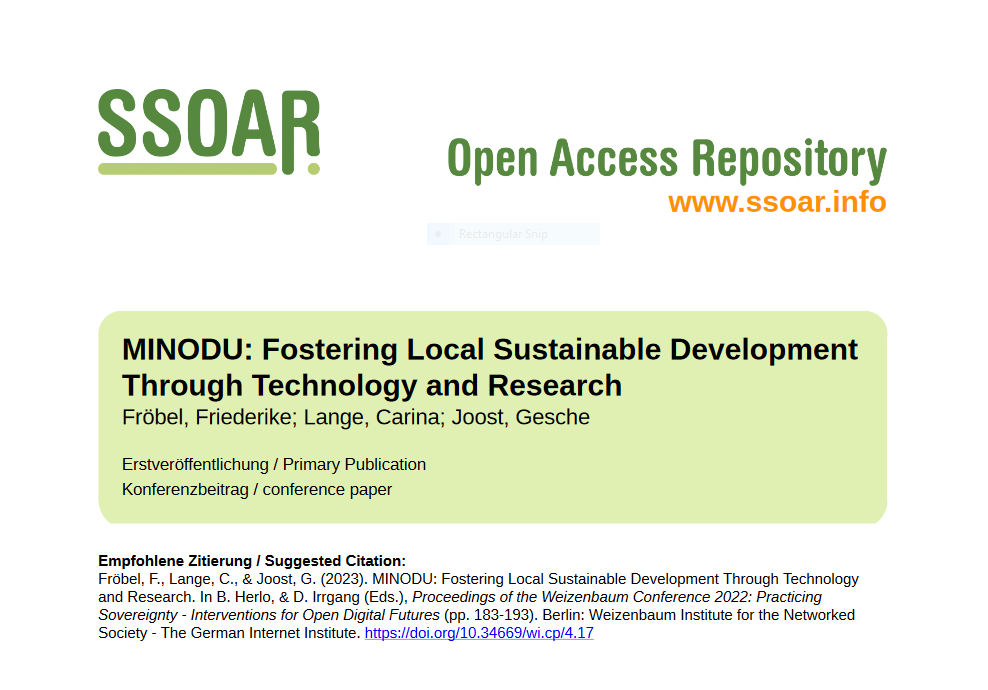MINODU: Fostering Local Sustainable Development Through Technology and Research
Rapid climate change is exposing subsistence farmers to enormous challenges, especially in Sub-Saharan Africa. Several foreign aid programs have been set up to cope with these issues, many of which have focused on technical solutions. However, there seems to be a large gap between scientific research and the needs of local communities. Besides focusing on new ways to improve the resilience of local food production, there is also an urgent need to adapt available knowledge to the local context. Based on experiences from a project to co-create community networks in Togo in 2020, we aim to empower local stakeholders, including farmers and scientists, to adapt existing knowledge of sustainable crop farming to current practices. New modes of knowledge exchange can be established with the help of participatory design. These methods may help to foster a collective approach to learning that enables people to cope with global challenges on a local level, all while valuing the traditional practices of local farmers and enriching them with scientific knowledge.
Available in en
